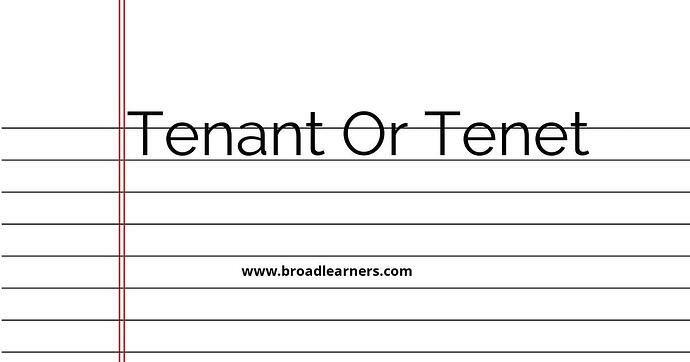'Tenant' and 'tenet' are commonly confused words in English grammar. Understanding the difference between 'tenant' and 'tenet' is important to use them correctly in written and spoken English.
'Tenant' refers to a person who occupies or rents a property or space from a landlord. It is used to describe someone who is living or working in a particular space.
'Tenet', on the other hand, refers to a principle, belief, or doctrine that is held to be true by a group or an individual. It is used to describe a fundamental belief or rule that guides someone's actions or decisions.
Let's take a closer look at the meanings and usage of 'tenant' and 'tenet'.
| 'Tenant' | 'Tenet' |
|---|---|
| The word 'tenant' is used to refer to a person who occupies or rents a property or space. | The word 'tenet' is used to refer to a principle, belief, or doctrine. |
|
|
To remember the difference between 'tenant' and 'tenet', it can be helpful to associate 'tenant' with the idea of renting or occupying a space, while 'tenet' relates to fundamental beliefs or principles.
Here are some examples of correct usage:
- The tenant complained about the leaking faucet in the apartment. (referring to someone who rents the apartment)
- One of the key tenets of this organization is transparency. (referring to a fundamental belief of the organization)
- She is a tenant in the commercial building. (referring to someone who occupies a space in the building)
- The tenet of honesty is important in building trust. (referring to a principle of honesty)
Remembering the correct usage of 'tenant' and 'tenet' will improve your grammar and communication skills.
